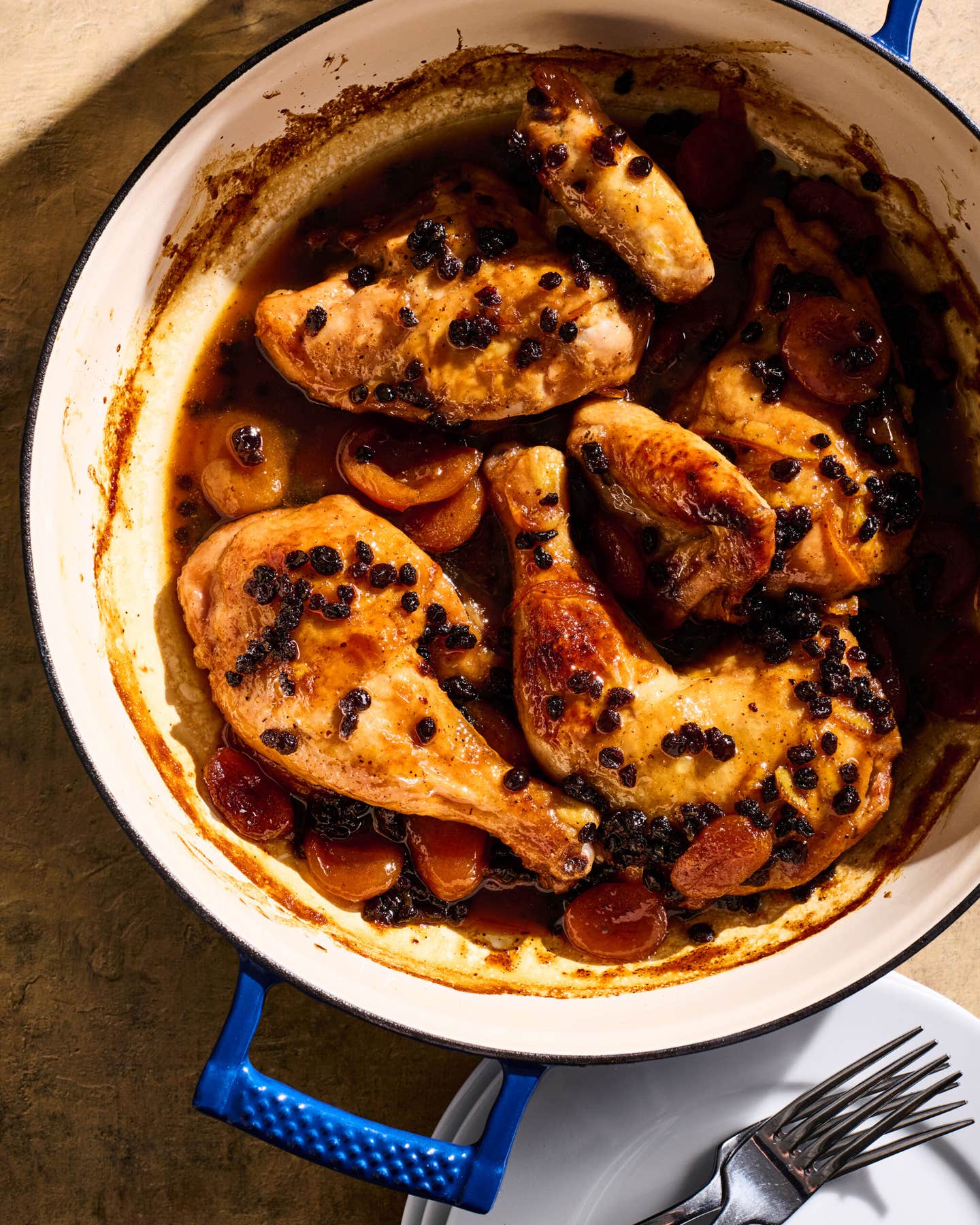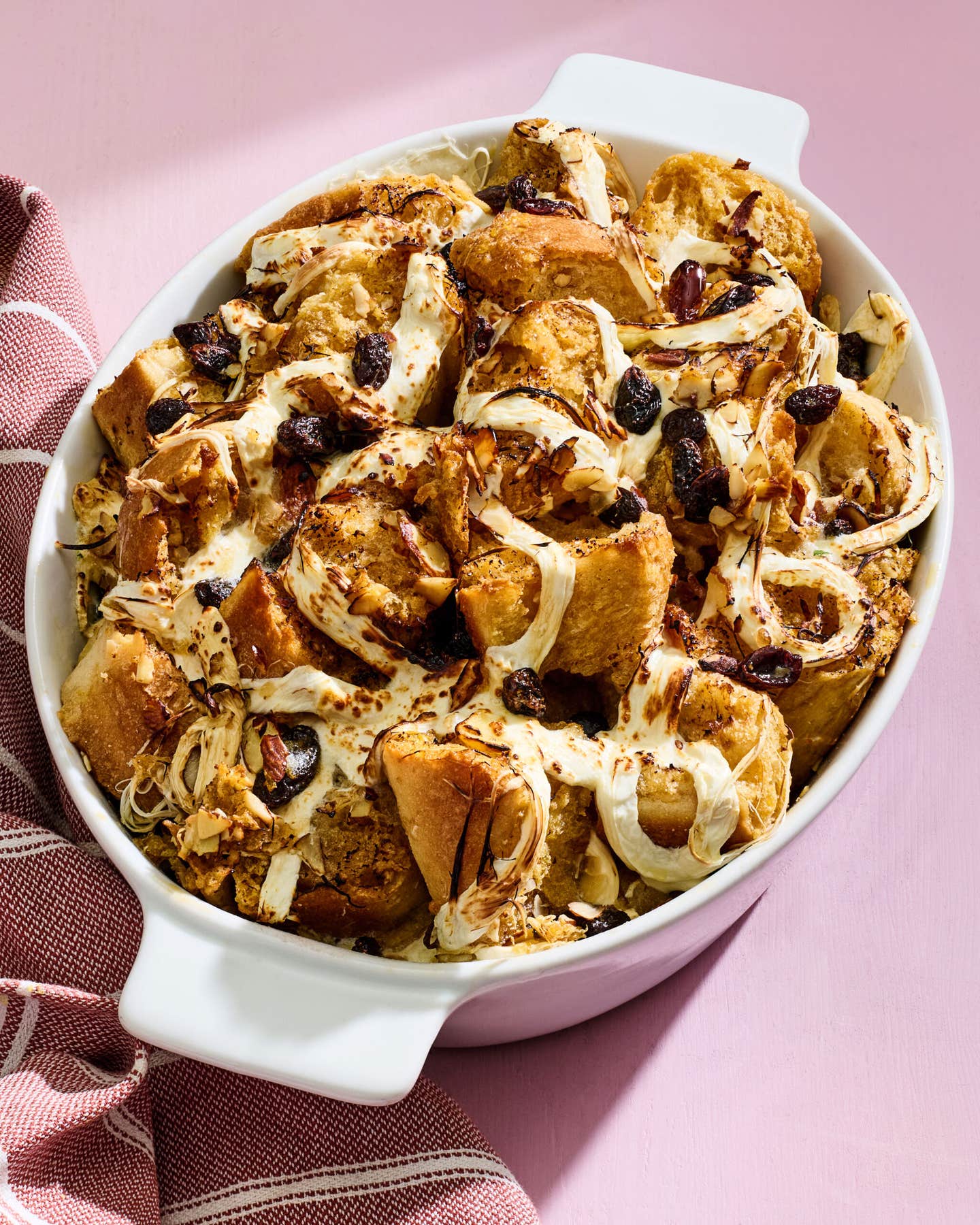Tteokguk (Rice Cake Soup)
A Korean New Year’s tradition, this soothing soup showcases rice cakes at their toothsome best.
- Serves
4
- Prep
35 minutes
- Time
55 minutes

In South Korea, New Year’s Day happens twice a year: once on Jan. 1 on the Gregorian calendar, and again on the first day of the lunar calendar. Both days are celebrated with tteokguk, a simple soup made by cooking thin oval-shaped tteok, or rice cakes, in broth until tender. “Tteokguk is one of the most significant dishes in Korean tradition,” write chefs Jungyhun Park and Jungyoon Choi in The Korean Cookbook. “On the first day of the new year, tteokguk was eaten as the first meal in tribute to ancestors.”
While the version below calls for homemade anchovy broth, a widely used ingredient in Korean cuisine, it can be swapped out for beef broth or vegetable broth. Look for dried anchovies with smooth, shiny scales. If they’re not fully dried, Park and Choi suggest microwaving them for 30 seconds to dehydrate fully. They also recommend cleaning the dried anchovies by slitting the stomach and removing the black organs, although many Korean home cooks skip this step. Since anchovy broth is so commonly used in Korean cuisine, you can also find pre-batched sachets of anchovies, dasima (dried kelp), and dehydrated vegetables at Korean markets.
For this dish, the traditional rice cake shape is thin coins, which are often labeled as tteokguk tteok. Look for them fresh in the prepared or refrigerated sections of a Korean grocer, or frozen in the freezer aisle.
Adapted from The Korean Cookbook © 2023 by Junghyun Park and Jungyoon Choi. Photography © 2023 by Jinju Kang. Reproduced by permission of Phaidon. All rights reserved.
Featured In: “A Brief Guide to the Wide, Wonderful World of Korean Rice Cakes,” by Jia H. Jung.
Ingredients
For the anchovy broth:
- 2 oz. dried anchovies (about ⅓ cup), cleaned if desired (see headnote)
- 1 large sheet (¾ oz.) dasima or kombu (dried kelp)
- 1 daepa (Korean leek), cut into 1-inch pieces
For the soup:
- 4 oz. beef brisket, cut into bite-size pieces
- 2 Tbsp. cheongjang (light Korean soy sauce), or gukganjang (Korean soup soy sauce)
- 1 Tbsp. toasted sesame oil
- 14 oz. fresh or thawed frozen sliced tteok (coin-shaped rice cakes)
- 1 Tbsp. finely chopped garlic
- 2 eggs, beaten
- 3 scallions, thinly sliced on the bias
- Kosher salt
Instructions
Step 1
Step 2
Step 3
- Make the anchovy broth: To a large pot set over medium heat, add the anchovies, dasima, daepa, and 12 cups water. Bring to a boil, then remove and discard the dasima, and continue boiling for 30 minutes more. Strain and discard the solids. (You should have about 10 cups broth.)
- Make the soup: In a small bowl, toss together the beef and soy sauce. Set aside to marinate for 10 minutes.
- In a medium pot set over medium heat, add the sesame oil. When the oil is hot, add the beef and cook until brown, 2 minutes. Add 6 cups of the anchovy broth and bring to a boil, skimming the foam. Add the tteok and garlic, and boil until the rice cakes are soft, 5 minutes. Gently pour in the eggs in a circular motion. Bring back to a boil, then add the scallions and season to taste with salt. Remove from the heat and serve hot in individual bowls.
Keep Reading
Continue to Next Story










